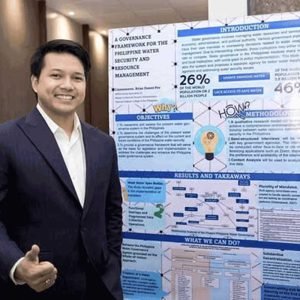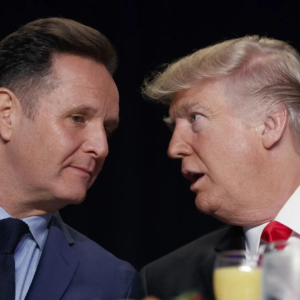
As the Philippines prepares for its highly anticipated May 2025 midterm elections, the landscape is already fraught with familiar names, new political movements, and the looming influence of controversial sectors. These dynamics suggest that the upcoming elections may not only be a battle for seats but a battle for the very soul of Philippine democracy.
The Philippine electoral process has always been deeply rooted in family names and political dynasties. The 2025 elections are no exception. Many familiar faces are poised to maintain or extend their political influence, with political families ensuring that their legacy survives, even through the next generation. The Yllana brothers, well-known figures in Philippine entertainment, are aiming to carve out political careers for themselves. Their candidacy is yet another example of the recurring interplay between entertainment and politics, which has consistently shaped election results. This phenomenon underscores the Philippines’ unique blend of celebrity culture and electoral politics, where popular public figures often leverage their fame to gain political power.
The return of seasoned politicians is another trend defining the 2025 elections. One prominent figure is former Senator Kiko Pangilinan, who has set his sights on regaining his Senate seat. Pangilinan’s political comeback is reflective of a broader pattern in Philippine politics: the re-entry of experienced politicians who had once stepped away from the limelight but continue to hold sway over their constituencies. Pangilinan’s return, combined with other veteran politicians eyeing local and national positions, indicates the persistence of political recycling, where familiar faces and names often limit opportunities for new leaders to rise.
This pattern is particularly evident in the provinces, where local political families continue to reign supreme. In Sarangani, political dynasties are very much alive, as relatives of current incumbents are preparing to run for various positions. These dynastic maneuvers are part of a broader trend seen across the country, where families with political machinery secure their dominance. While such strategies may ensure continuity, they are also perceived as barriers to democratic reform, locking in control and preventing fresh candidates from gaining ground.
But the upcoming elections aren’t just about traditional power players. They’re also shaping up to be a test for the party-list system, which was originally designed to give marginalized groups a voice in Congress. In 2025, a total of 160 party-list groups are vying for 63 seats in the House of Representatives. However, concerns about this system being hijacked by political elites are intensifying. Critics argue that instead of serving marginalized communities, party-list groups are increasingly dominated by dynastic families and vested interests. The party-list system, a once-promising mechanism for representation, is now seen by some as a backdoor for the powerful to maintain control. In recent years, traditional politicians have found ways to use this system to their advantage, pushing out truly marginalized groups and coopting the seats for their personal agendas.
Adding another layer of complexity is the early momentum of allies of President Bongbong Marcos. Early polling suggests that Marcos-affiliated candidates are performing well in the race for Senate seats, sparking discussions about whether the 2025 elections will further consolidate Marcos’ political dominance. Should his allies gain significant ground, this could lead to tighter control of both legislative houses, creating a more favorable environment for the president’s policies and possibly reshaping the legislative agenda for years to come.
However, the 2025 elections aren’t just a contest between dynasties and political elites. Another critical factor will be the influence of external forces, particularly Philippine Offshore Gaming Operators (POGOs). POGOs have become highly controversial, with links to organized crime and illicit activities. Some anti-crime advocates have expressed concerns about these operators wielding significant political influence in the upcoming elections. The fear is that POGOs could bankroll candidates who would allow them to continue operating without stringent regulations, thereby deepening their foothold in the country’s political and economic systems. The potential for POGO interference highlights a growing challenge in curbing external and sometimes criminal influences that can distort the democratic process.
While traditional players and external forces dominate the landscape, new and progressive movements are also striving to break through. A key example is the emergence of “Alternatibo” an alliance of currently five (5) that is positioning itself as a credible alternative to the political status quo. With a platform that emphasizes reforms, social justice, and anti-corruption, Alternatibo 2025 aims to capitalize on growing voter disillusionment with the elite-dominated political system. The alliance’s progressive policies have gained traction with younger voters and sectors of society frustrated by the enduring dominance of political families. Whether it can mobilize enough support to pose a real challenge to the established order remains to be seen, but its rise signifies the deep desire for change among certain segments of the electorate. Convening ALternatibo is the new alliance between the Democratic Party of the Philippines (DPP), headed by its President Dado Valeroso and Makakalikasan – Nature Party Philippines headed by its Chairperson, Orlando Ravanera. The DPP-Makakalikasan Alliance has fielded as its Senatorial Candidate, Roy Cabonegro, President of the Makakalikasan Party. Cabonegro is joined by 66 other local DPP-Makakalikasan candidates, including alternative governatorial and vice governatorial candicates in most of provinces in Mindanao where both DPP and Makakalikasan Party are strongest.
Another looming issue is electoral transparency. Previous elections have been marred by controversies surrounding voting machines and allegations of tampering. In response, the Commission on Higher Education (CHED) has committed to providing IT support staff to assist in the 2025 elections. This move is part of a broader effort to ensure a more transparent and efficient electoral process, but whether these reforms will be enough to instill confidence in the election’s integrity remains uncertain. Voters have grown increasingly skeptical, particularly after technical issues in past elections led to accusations of vote-rigging.
The celebrity factor, while not new to Philippine elections, is also making a bold statement in 2025. Willie Revillame, a popular television host, has thrown his hat into the political ring by running for a Senate seat. Revillame’s candidacy is likely to capture the imagination of voters who see him as a champion of the common people, given his years of hosting shows that directly connect him with the masses. His candidacy highlights the continued interplay of entertainment and politics in the country, where name recognition can translate into electoral success. Revillame’s bid for the Senate is emblematic of the ongoing fusion between showbiz and public service, where public visibility often trumps political experience.
As the battle for seats intensifies, some candidates are entering the race uncontested. Several candidates for the House of Representatives in Metro Manila have no rivals, securing their positions before votes are even cast. This phenomenon of unchallenged candidacies raises questions about the vibrancy of the country’s electoral democracy. In areas where political machinery is strong and opposition is weak, elections become less of a contest and more of a coronation. This discourages political competition and reduces the choice available to voters, further entrenching elite control.
Looking ahead, the dynamics of the May 2025 elections are set to challenge the very fabric of Philippine democracy. Will the dominance of dynasties and elites continue unabated, or will new and progressive forces break through? Can the integrity of the electoral process be maintained, or will external influences like POGOs distort the results? These questions will define the stakes of the upcoming elections.
In a political environment increasingly dominated by the same names and forces, the stakes for the 2025 elections are higher than ever. With the rise of progressive parties, the continued stranglehold of dynasties, the potential for external interference, and the intertwining of celebrity culture and politics, these elections could set the course for the Philippines’ future. The battle lines are drawn, but the outcome remains far from certain.






